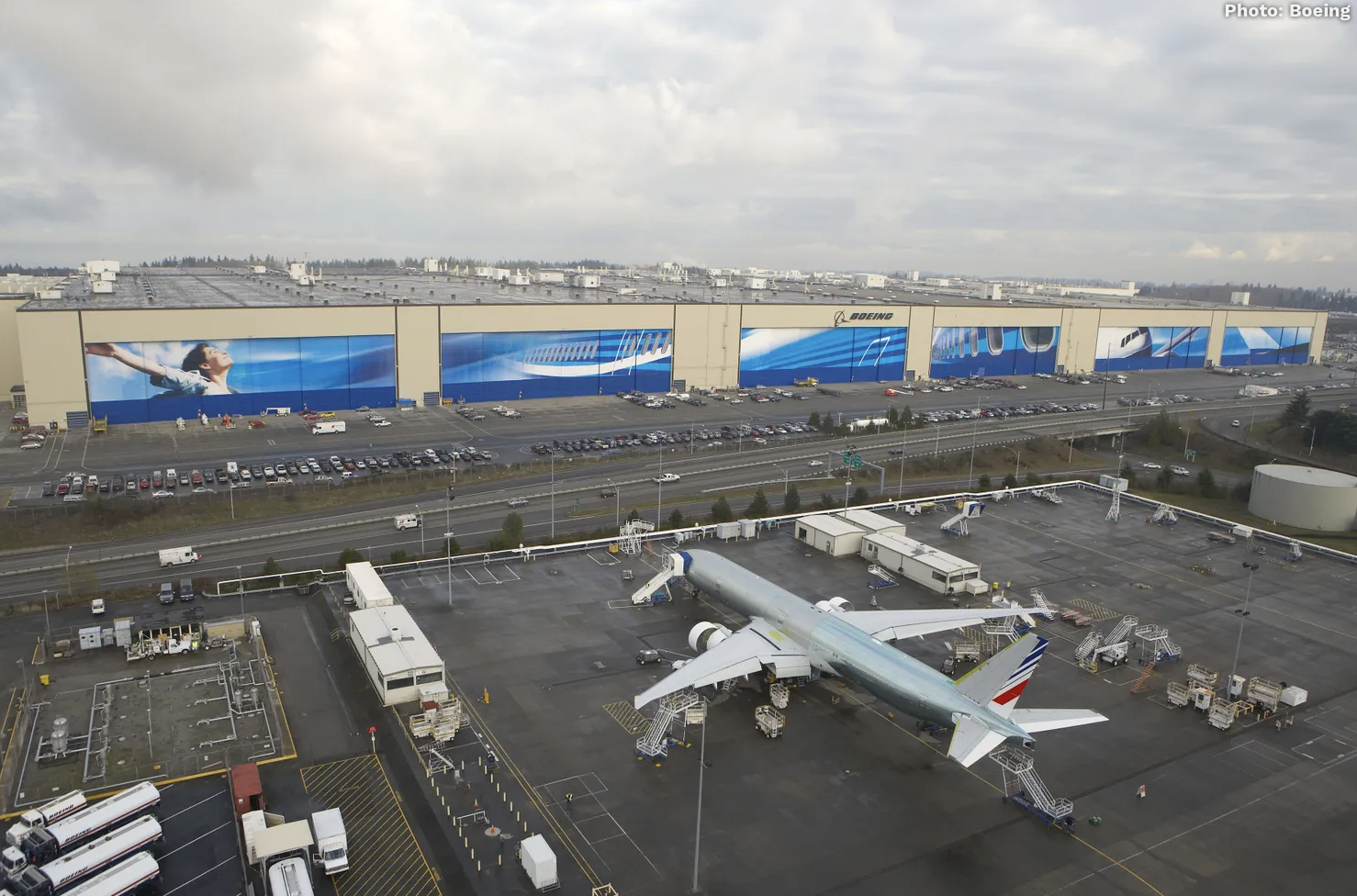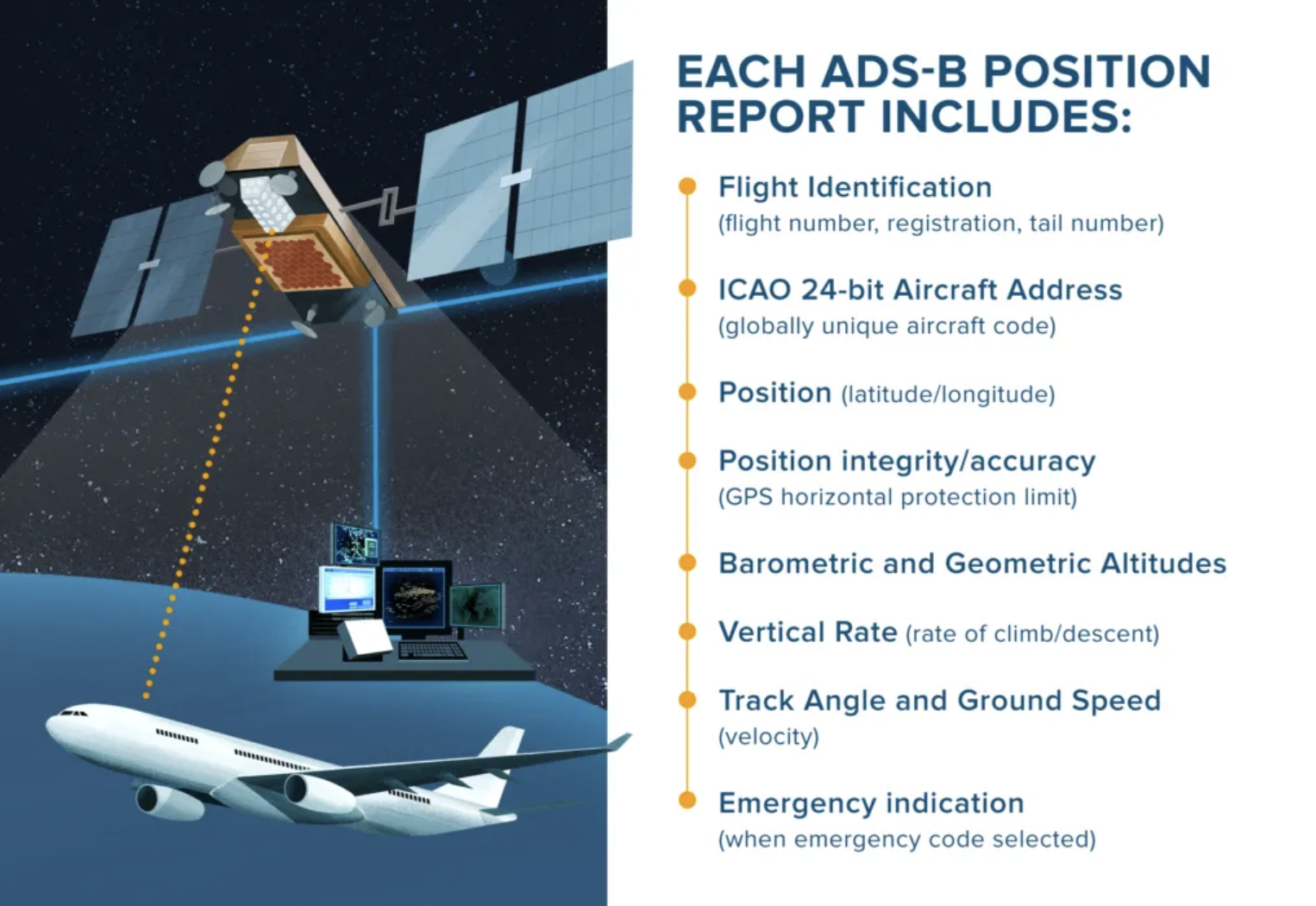Aerospace titan Boeing is partnering with Aireon, the world’s leading provider of space-based automatic dependent surveillance-broadcast (ADS-B) services, to obtain access to its global flight data stream.
Aireon, based in McLean, Virginia, will provide almost real-time aircraft event data alongside aircraft historical aircraft data to Boeing. The announcement comes as Boeing enters the final stages of certification for several of its aircraft and faces a strict timeline for the approval process.

How the new data can improve safety
The Aireon space-based air traffic surveillance system resides in the new state-of-the-art Iridium NEXT satellite constellation, which consists of 66 low-earth orbit interconnected satellites. The satellites were sent into space aboard eight SpaceXFalcon 9 rockets to form a pattern allowing maximum coverage.
This ADS-B network provides aircraft position updates worldwide and eliminates coverage gaps over oceans, deserts, and polar regions. The system uses satellites to track aircraft, and this data is used by flight tracking websites and air traffic control alike. Simple Flying previously covered how the systems operate and how this data has helped bring flight tracking to the general public.
The system contracted by Boeing, AireonINSIGHTS, combines aircraft location and tracking data with external data such as weather, avionics, aircraft registries, and scheduling data to provide key performance indicators related to a flight’s operational safety and efficiency. Don Thoma, Aireon CEO, expressed his excitement about the partnership:
“The power of the Aireon data unlocks a cache of information for Boeing regarding the operations of its aircraft in the global airspace. With this integration, Boeing will have data to provide a full operational view of its fleet, and we are excited to partner with them.”
Potential uses of the new data for Boeing
Boeing has announced its intentions to integrate the ADS-B data into its safety analytics program moving forward. A vital benefit of the space-based data stream is to allow Boeing to gain insights into key performance indicators on flight safety.
The company previously announced it was implementing an enterprise Safety Management System (SMS), an integrated framework for managing safety risks widely recognized as an industry best practice. Boeing will integrate the new data acquired from Aireon into the existing framework to deliver insights to proactively identify hazards and monitor emerging safety trends through data science and data analytics.
“We are investing in a data stream that can be transformed into safety intelligence,”said Vishwa Uddanwadiker, Boeing vice president of Aerospace Safety Analytics.“We are adding this to our data analytics ecosystem to help predict and prevent safety risks, while identifying other opportunities to strengthen our Safety Management System.”

The Federal Aviation Administration (FAA) has already used the exceptionally detailed data on Boeing aircraft in the past two years. The FAA used Aireon’s technology to monitor the entire global fleet of the Boeing 737 MAX as it reentered service.
The system streamed the location and performance of each MAX aircraft to the FAA technical center in New Jersey at intervals of half a second to help the FAA detect any issues as early as possible.
Cre: Simple Flying
Nguyen Mai Huong-COMM












